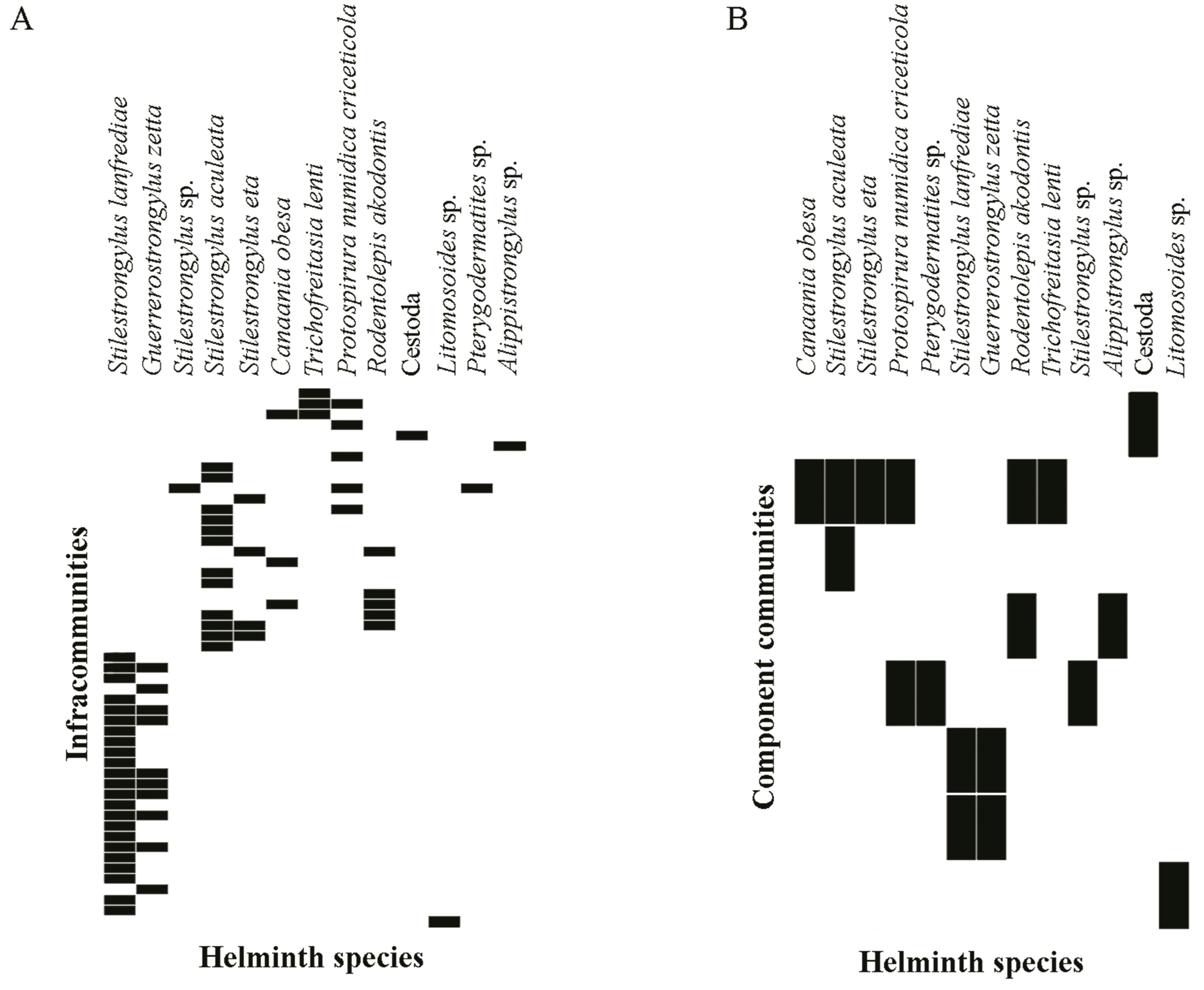Abstract
The helminth fauna and metacommunity structure of eight sympatric sigmodontine rodents were investigated at the Serra dos Órgãos National Park, an Atlantic Forest reserve located in the State of Rio de Janeiro, southeast Brazil. Rodents of the species Abrawayaomys ruschii, Akodon montensis, Blarinomys breviceps , Delomys dorsalis, Oligoryzomys flavescens, Oligoryzomys nigripes, Oxymycterus quaestor and Thaptomys nigrita were found infected with helminths. Akodon montensis presented the highest total helminth species richness, with six different species of helminths. The nematode Stilestrongylus lanfrediae was the most abundant and prevalent helminth species observed. The host-parasite network analysis showed little interactions among host species. Akodon montensis seems to act as a keystone-species in the rodent community. This species shared the nematodes Stilestrongylus aculeata with A. ruschii and Protospirura numidica criceticola with T. nigrita, and the cestode Rodentolepis akodontis with D. dorsalis. The congeners host species O. flavescens and O. nigripes shared the nematodes Guerrerostrongylus zetta and S. lanfrediae. The rodents B. breviceps and O. quaestor did not share any helminths with other hosts. The helminth metacommunity showed a random pattern on both infracommunity and component community levels, indicating different responses by each helminth species to the environmental gradient.
Keywords:
Elements of metacommunity structure; network analysis; parasitism; small mammals

 Thumbnail
Thumbnail
 Thumbnail
Thumbnail

